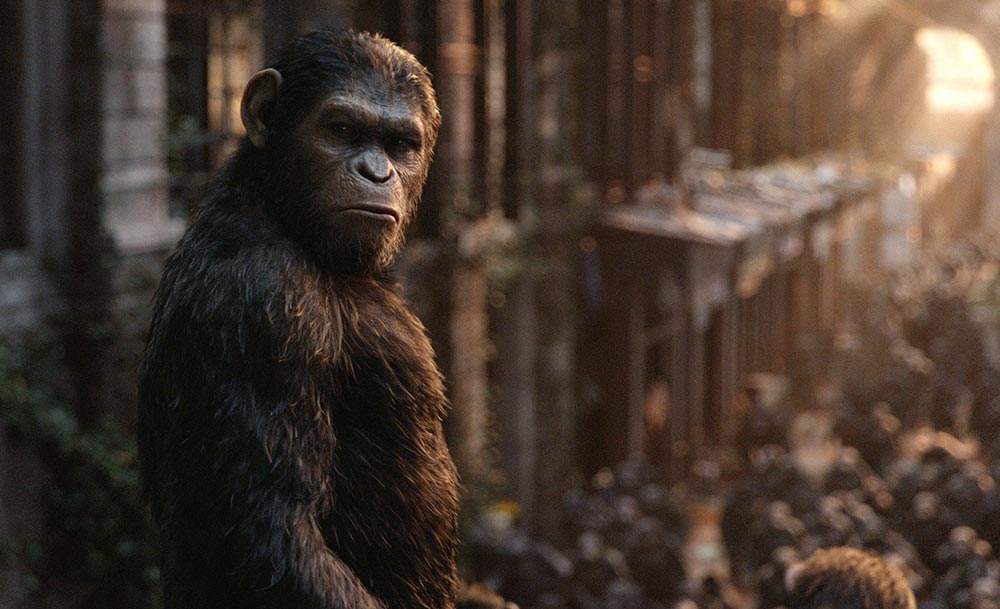Dawn of the Planet of the Apes
Tender, tense, intelligent and morally complex, this is a genuine contender for blockbuster of the year.
Overview
Take Dawn of the Planet of the Apes and add it to the rare list of sequels that transcend their predecessors.
Picking up the story around ten years after Rise of the Planet of the Apes, the opening titles paint a bleak picture of a world brought to the brink of extinction via the so-called 'Simian Flu'. Brink of extinction for humanity, that is, because the apes, by contrast, have flourished.
Under the strict yet compassionate leadership of Caesar (once again made inconceivably lifelike thanks to Andy Serkis's performance and the remarkable team at WETA), the apes have now adopted a number of human traits and habits: communication through sign language, horse riding, spear wielding and even the establishment of some rudimentary written rules — chief amongst which is: APE NOT KILL APE. Given the descent into murderous anarchy by the scattered human survivors of the virus, that proclamation is intended as a critical point of difference for Caesar, a mark of pride and proof of primate primacy.
It's also, unfortunately, delusory, and it is in that realm of 'innocence lost' that Dawn spends most of its time. With rivalries and jealousies brewing between both father and son and leader and lieutenant, Dawn of the Planet of the Apes is something of a modern-day Richard III.
What makes it so compelling is that none of the villains — ape or human — are without their justifiable reservations and prejudices. Koba, for example, is Caesar's unfailingly loyal friend and bodyguard, yet he bares the scars of cruel human testing and holds no affection for the survivors. On the human side, the leader of the survivors' colony (Gary Oldman) sees only the faces of his dead wife and children whenever confronted by apes, and his determination to restore power to the city has no room for the kind of simian compassion shown by his lieutenant (Jason Clarke).
Dawn of the Planet of the Apes is smaller in both scale and ambition than Rise yet feels so much bigger and more satisfying. It's an 'us and them' tale, a prelude to war where neither side is as unified as they might think. The direction by Matt Reeves (Cloverfield) is technical and delicate, aided by sumptuous cinematography and special effects that are nothing short of exquisite, with even the most intense closeup failing to betray even the tiniest flaw in design. If anything, the CGI apes outperform the humans in almost every scene in which screen time is shared.
Tender, tense, intelligent and morally complex, Dawn of the Planet of the Apes is an outstanding film and a genuine contender for blockbuster of the year.





